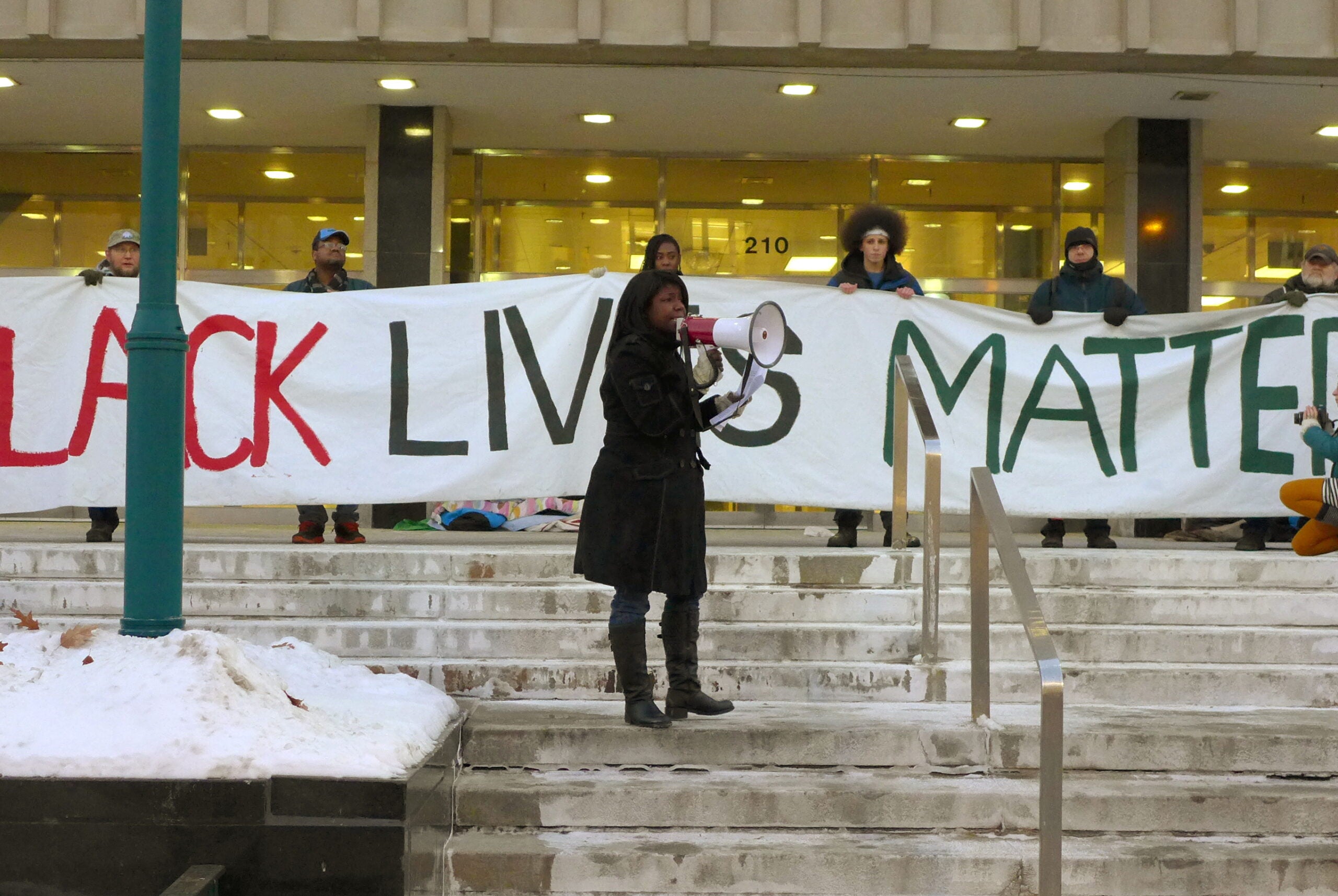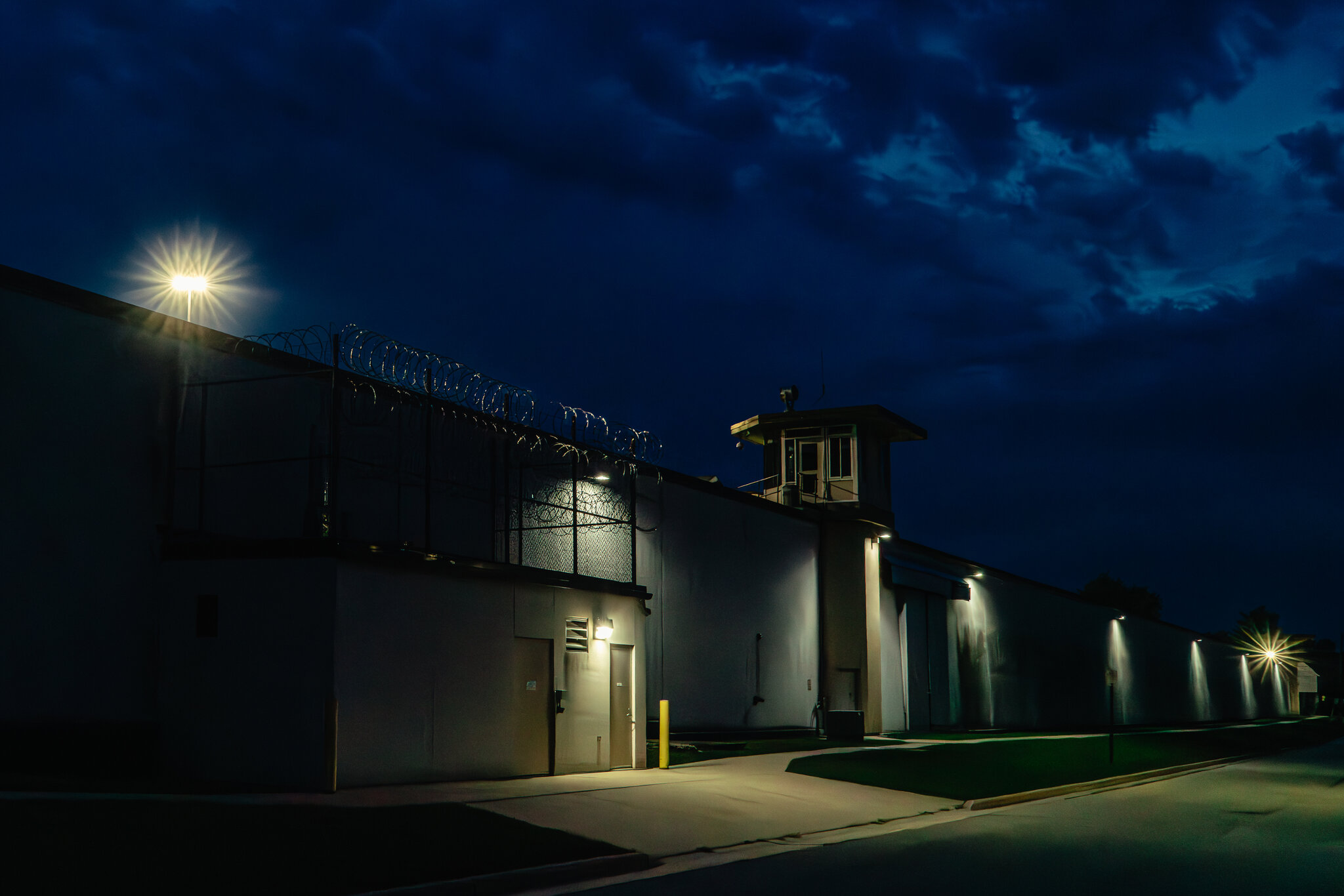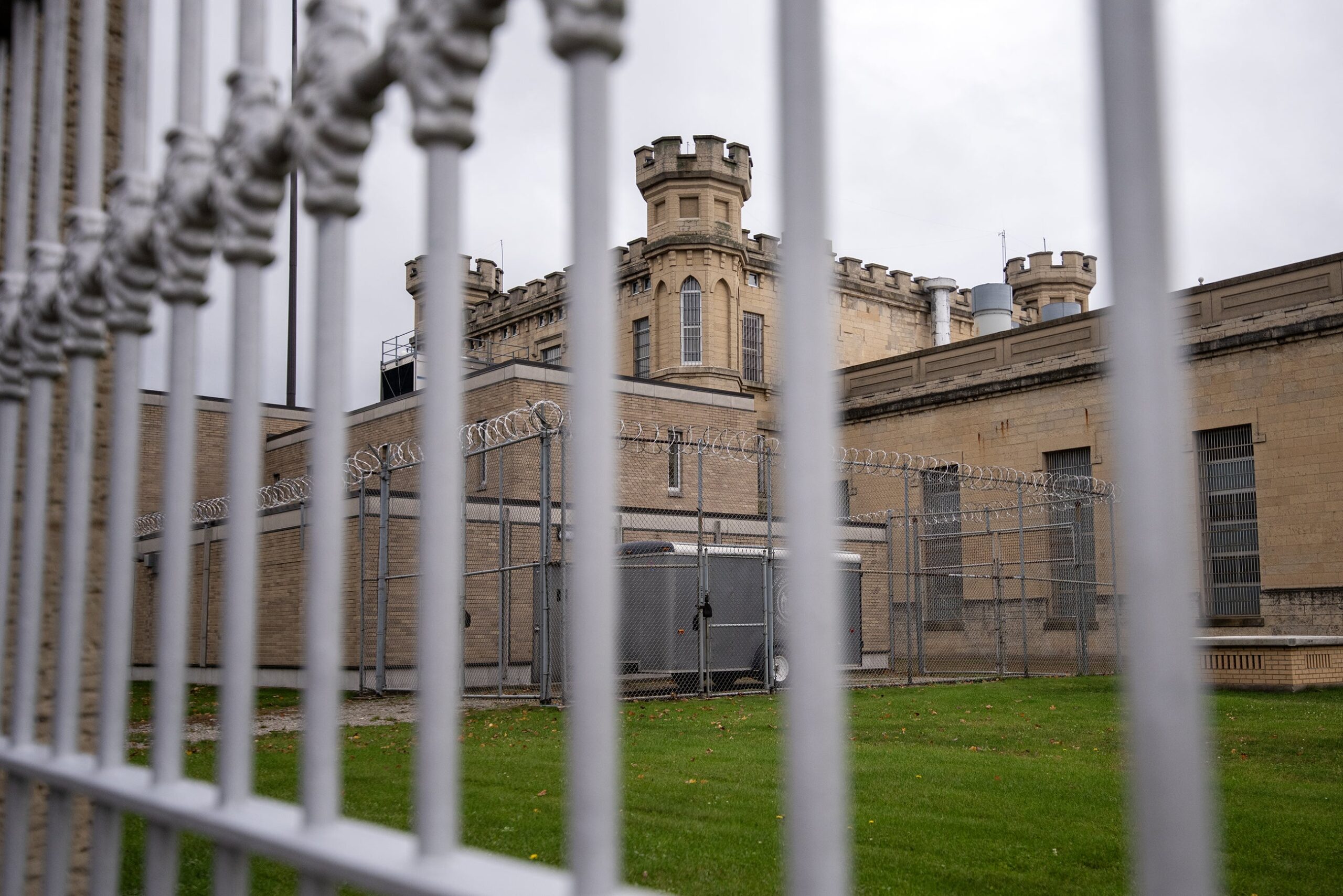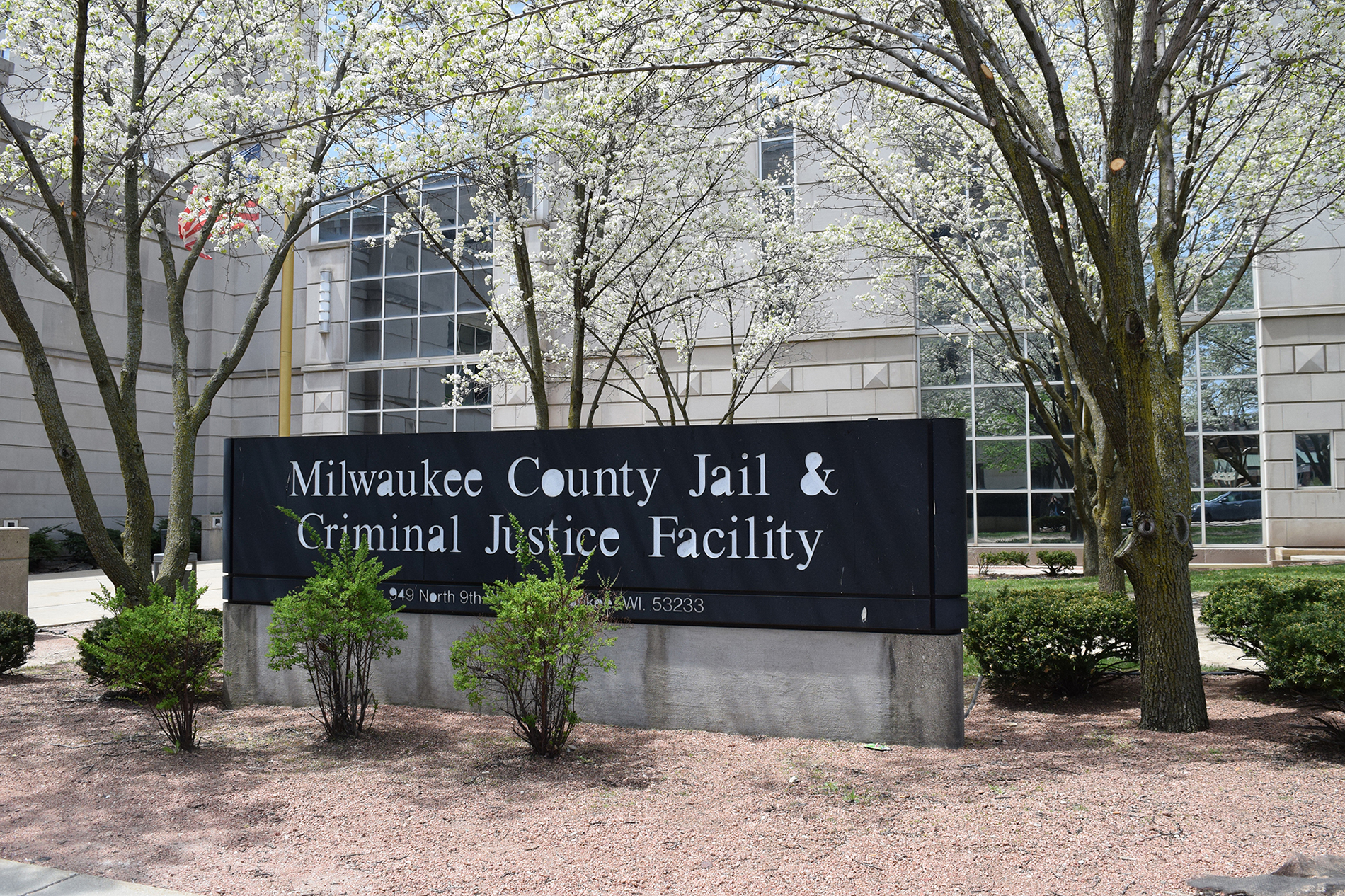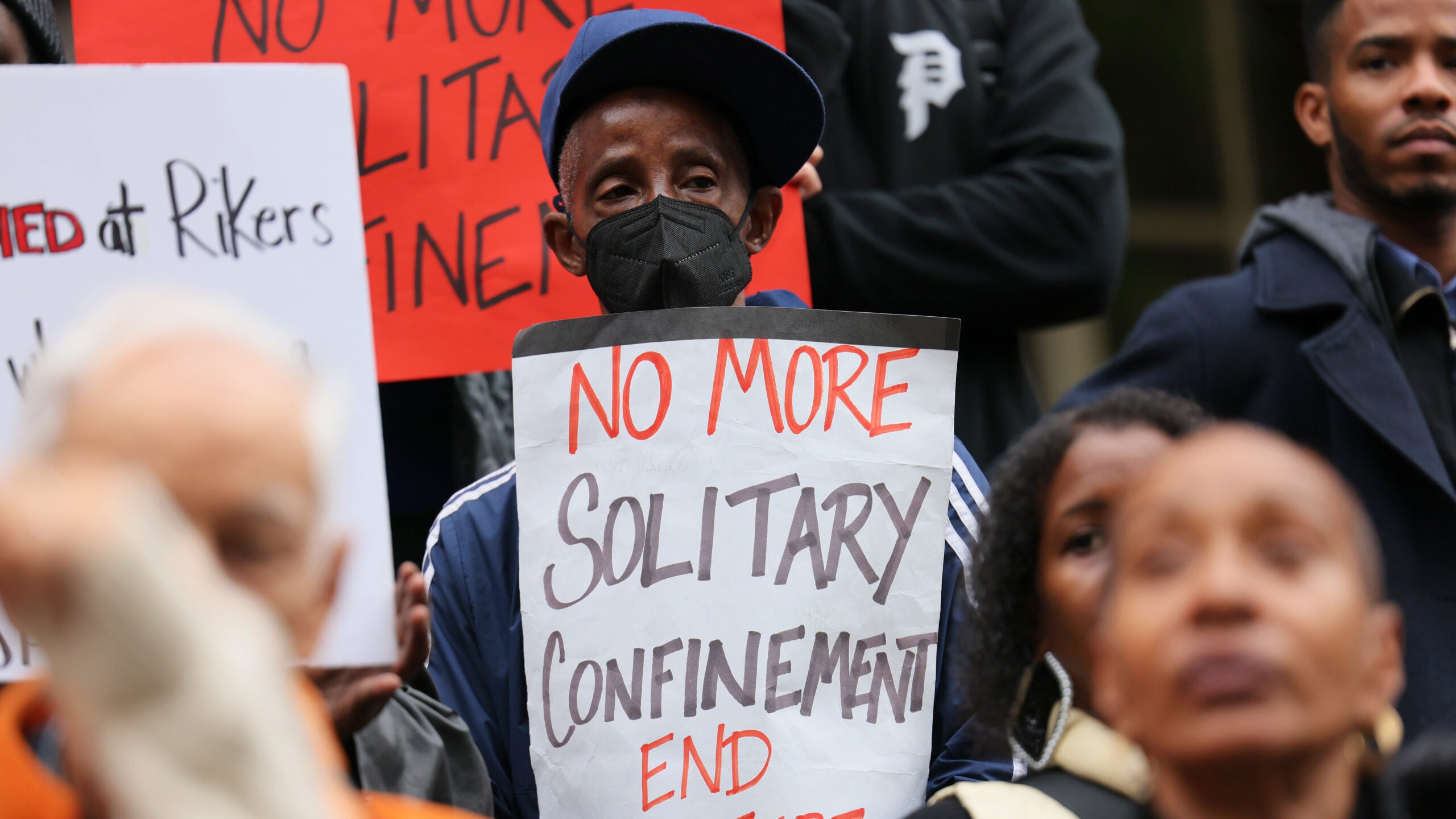A coalition of community groups in Madison have launched a campaign to eliminate the use of solitary confinement in the Dane County jail.
The coalition, Young, Gifted and Black, held a rally outside the City-County Building in Madison earlier this week.
“We demand an end to solitary confinement,” declared Brandi Grayson, a member of the coalition, to the gathered crowd. “We demand that Madison take the approach of building the people and not the jail.”
Stay informed on the latest news
Sign up for WPR’s email newsletter.
Group members later testified at a committee meeting, where county supervisors debated over a list of recommendations for improving conditions in the county jail. County Supervisor Mike Willett said it’s unrealistic to try to eliminate solitary confinement.
“It is used for very violent prisoners,” said Willett. “The option if we don’t have solitary confinement is, what? Have a deputy sit on him? Solitary confinement can not be eliminated as much as we would like it to be.”
Solitary confinement is facing criticism from reformers across the country. Earlier this week, officials in New York banned its use for inmates age 18 to 21 in Riker’s Island jail. In Colorado, Corrections Secretary Rick Raemisch — who used to head the Department of Corrections in Wisconsin — has reduced the number of inmates who are sent to segregation cells, and shortened the length of time they can be held there.
Prison officials in Wisconsin, under pressure from reform groups, have also begun to change the rules that land inmates in solitary cells. Dane County Sheriff Dave Mahoney said he’d like to do the same thing, especially for mentally ill inmates who may be suicidal.
“It’s inappropriate, it’s inhumane and it shouldn’t be occurring in Dane County,” said Mahoney. “Most current efficient facilities today have cells. Sometimes they’re referred to as ‘soft cells’ for a person who’s violent to themselves. We don’t have one in Dane County.”
But Eric Upchurch of the Young, Gifted and Black Coalition said evidence gathered by the National Alliance for the Mentally Ill and Amnesty International have found that even for the mentally ill, solitary confinement is not the answer.
“Solitary confinement exacerbates the issues of mental wellness,” said Upchurch. “To say that you have to put somebody in solitary confinement is to say that you have to exacerbate their issues. And then if you’re arresting people because of their … mental illness, you are in fact contributing to the high arrest rate of those people.”
An end to the use of segregation cells is part of a longer lists of reforms the coaliton is calling for to reduce the county’s jail population. One coalition member “M” Adams told the committee that $8 million now earmarked for a new or remodeled jail should go instead to troubled neighborhoods where many of the current jail inmates come from.
“There’s $8 million here for capital funding,” said Adams. “There’s a poor community, a black community without a community center. Go and build a community. I’ve heard time and again that there is not money — clearly there is money. We will not be fooled. We are here demanding that people do what its right, that people do what is just.”
County supervisors on the committee have agreed to include community members in drafting a plan to address both the safety concerns at the jail and reduce racial disparities in the inmate population. Almost half the inmates in the jail are African-American, but blacks make up only 6 percent of the county’s population.
Wisconsin Public Radio, © Copyright 2024, Board of Regents of the University of Wisconsin System and Wisconsin Educational Communications Board.

